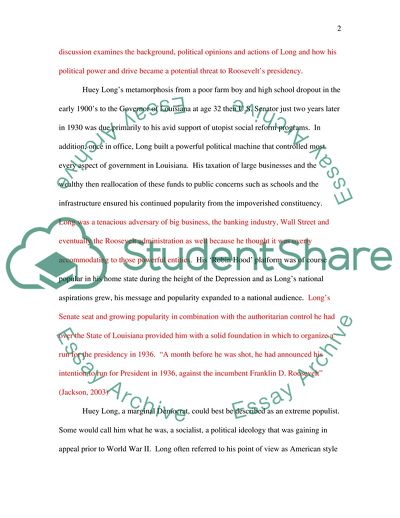Cite this document
(The Place of Huey Long in the 1936 United States Presidential Election Literature review, n.d.)
The Place of Huey Long in the 1936 United States Presidential Election Literature review. Retrieved from https://studentshare.org/history/1706732-to-what-extent-did-huey-long-represent-a-real-threat-to-the-to-the-position-of-president-franklen-d-roosevelt
The Place of Huey Long in the 1936 United States Presidential Election Literature review. Retrieved from https://studentshare.org/history/1706732-to-what-extent-did-huey-long-represent-a-real-threat-to-the-to-the-position-of-president-franklen-d-roosevelt
(The Place of Huey Long in the 1936 United States Presidential Election Literature Review)
The Place of Huey Long in the 1936 United States Presidential Election Literature Review. https://studentshare.org/history/1706732-to-what-extent-did-huey-long-represent-a-real-threat-to-the-to-the-position-of-president-franklen-d-roosevelt.
The Place of Huey Long in the 1936 United States Presidential Election Literature Review. https://studentshare.org/history/1706732-to-what-extent-did-huey-long-represent-a-real-threat-to-the-to-the-position-of-president-franklen-d-roosevelt.
“The Place of Huey Long in the 1936 United States Presidential Election Literature Review”. https://studentshare.org/history/1706732-to-what-extent-did-huey-long-represent-a-real-threat-to-the-to-the-position-of-president-franklen-d-roosevelt.


